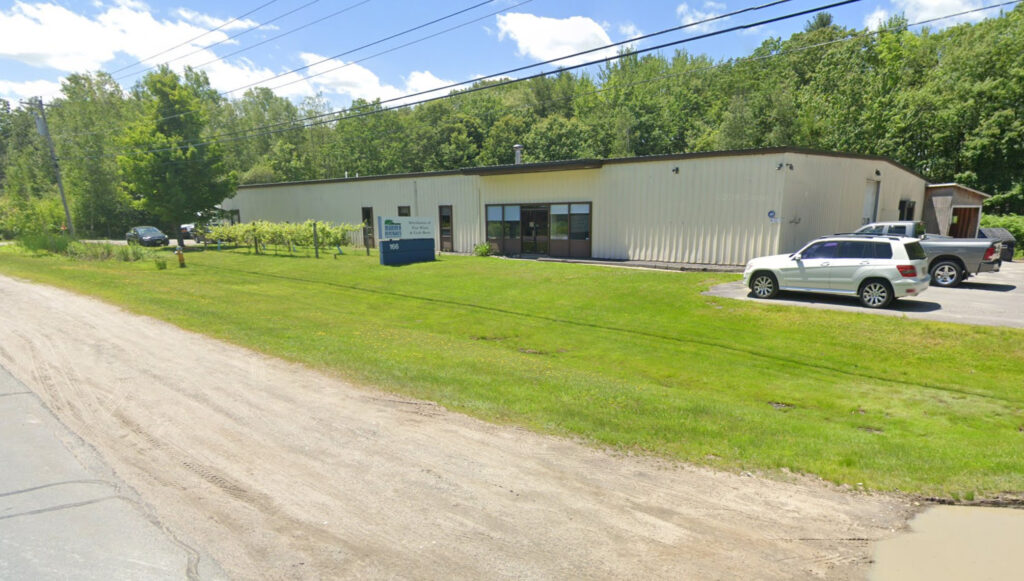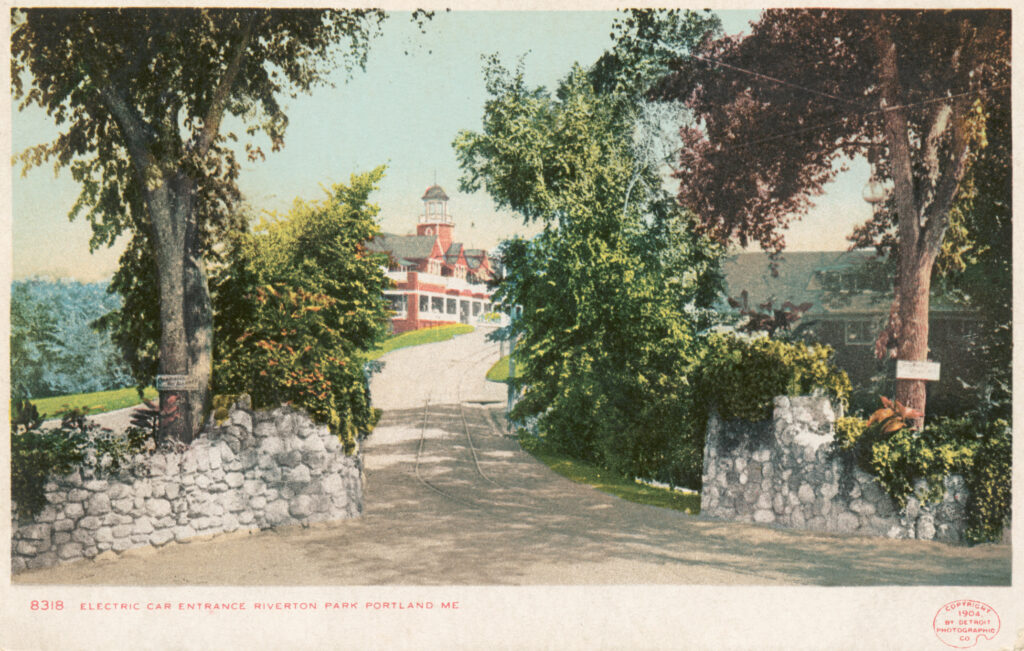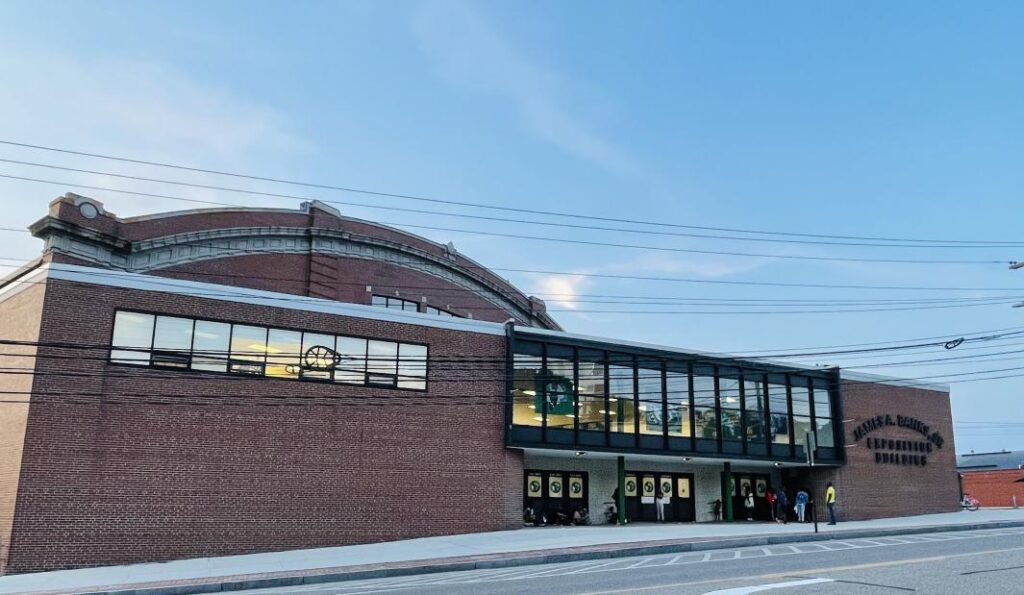Originally there was no City Council meeting scheduled for this evening, June 12th, but following the breakthrough on a deal to open a new shelter on Riverside Parkway, a last-minute notice was posted last week that this deal would be discussed and voted on today at 4:00 PM. It was the only item on the agenda, and consumed the entire two-hour period.
All Councilors were present, except for Councilor Rodriguez who arrived late.
However, prior to hearing the background of this shelter plan and the discussions it engendered, City Council rules require all meetings to begin with a period of public comments relating to those items not on tonight’s agenda.
General Public Comment
There was only one comment not related to the shelter plan, from meeting regular George Rheault. In his three-pronged comment, Rheault first informed the Council that he had requested a copy of the agreement made between the City of Portland and the local fire department regarding the latter’s performing training exercises in the old Oxford Street shelter. Rheault complained that he had not yet received this copy, and also added that the fact they closed the Oxford Street shelter was ill-advised in the light of tonight’s agenda. He also noted that a complaint he made last year, about the large number of faulty streetlights, had gone unaddressed and is worsening, putting residents in danger.

He then went on to ask whether tomorrow’s Listening Session being hosted by the city tomorrow, June 13th at 5:00 PM at 14 Ocean Gateway Pier, will be recorded, to which Mayor Snyder said ‘yes.’ This Listening Session is a meeting intended for all Portland residents to offer their opinions, experiences, and ideas regarding the homelessness and encampment crisis in Portland. This listening session would go on to be referenced throughout the night by other commenters.
With this singular comment out of the way, the Council would turn to the night’s single item – Order 247-22/23, approving the contract between Development Collaborative, the Maine Immigrants’ Rights Coalition, DC Blueberry LLC, and the City of Portland.
What is this deal?
Readers may be aware that the city had attempted to arrange for the construction of an immigrant-oriented shelter on Blueberry Road, but this deal fell apart. In order to not let the state funds secured for this project go to waste, Portland staff and its private partners have been scrambling to find an alternative plan. The funds, according to Development Collaborative representative Kevin Bunker, can only be used for a shelter that will be operative by this winter, so the clock was ticking.
These are the conditions in which this current deal arose. Arranged between Portland, Development Collaborative Management (DCM), the Maine Immigrants’ Rights Coalition (MIRC), and the property owners, this parcel at 166 Riverside Industrial Parkway was selected as a new site. This location is much closer to the heart of the Riverton neighborhood, and is also less-served by public transit, but the warehouse on-site was found suitable to convert into a 180-bed shelter.

Those 180 beds, in an often-misreported point, would not be intended for homeless people in general, but rather would specifically be reserved by preference for single (i.e. non-family) asylum seekers. Services at this shelter would be targeted at assisting and integrating newly-arrived immigrants, mostly from Central Africa, who are seeking asylum in the United States. The Homeless Services Center, a shelter recently opened on Riverside Street, is currently housing many of these asylum seekers despite the services there being more targeted to issues like substance abuse, domestic violence, and mental illness.

As the item was read into the record, City Manager West and Interim Corporation Counsel Goldman took the time to note a few important elements of the deal, and clarify some possible misconceptions.
Under the terms of the deal, according to these staff leaders, DCM would own the property, the City would furnish staff to operate the shelter with assistance from MIRC, after 18 months of operation parties will attempt a transition to operation by the MIRC entirely, and the lease will last for at least three years. The funds for the purchase and conversion are coming primarily from MaineHousing ($4.5 million) and other state sources, and the City of Portland isn’t contributing any money to the purchase, conversion, or hiring of new staff. Each of these points would be questioned and criticized either by public commenters or by City Councilors.
West also noted that while Portland wasn’t being asked to contribute any funds now, should anything change at the state level that would cause these funds to be retracted, the City of Portland would be on the hook for the total amount. She didn’t consider this a likely hiccup, but wanted to convey the risk.
Public Comments
With these details explicated, Mayor Snyder opened the floodgates of public comments.
The first to speak, George Fulster of the Riverton neighborhood, set the tone. “Once again, Riverside is being left without a voice,” he opened, going on to scathingly criticize the council for this last-minute meeting which didn’t give residents enough time to react and give comment. He cited the Listening Session taking place tomorrow, and asked, if the purpose of it was to gauge the public opinion on the homelessness crisis, why the City Council wouldn’t wait until after that Session to make this vote.

Kate Sykes, speaking next, echoed his points, urging the Council to postpone this vote until after the Listening Session. She questioned the motives of DCM and MIRC, and characterized the affair as a giveaway to private interests. Both Sykes and Fulster also supported the “small shelter” idea, a mainstay of Portland’s homelessness discourse, in which large central shelters are eschewed in favor of more numerous “mini-shelters” scattered evenly around the city.
Claude Rwaganje, Westbrook resident and founder of an educational nonprofit for immigrants in Maine, by contrast, thanked the Council for everything they’ve done for asylum seekers and urged them to approve the deal. He related his recent experience helping such immigrants after they were evicted from South Portland hotels, and told the Council this was not a “political issue.” Mary Cook, of the Opportunity Alliance, too echoed his comments, as did Belinda Ray, who specifically criticized Sykes’ comments as being uninformed and reminded listeners that the price tag for Portland was (tentatively) $0.00.
Ken Capron, another Riverton resident, had no such niceties. Speaking about his neighborhood, “What a great place to live until today.” He claimed that not a single resident was even aware of this meeting until three days prior, and even then only because they happened to notice it on the city schedule while looking for something else. He went on to viciously attack the councilors for being uncommunicative and unfair to Riverton, and finished with the warning – “Elections are coming up, and I hope some people will express their opinions through the vote.”
Mufalo Chitam, Executive Director of MIRC, shared that while she sympathized with concerns that things were going too fast, she responded that speed was necessary to respond to the crisis. She said that the shelter was being called within the MIRC the “Center for Transition and Asylum Needs,” and was optimistic for the future.
George Rheault, in his second comment, concurred with the Rivertonians that this was a barely-publicized meeting, and criticized some smaller elements of the deal, (including the MIRC’s fitness for their role,) but also suggested that the City should look into re-opening the recently closed Oxford Street shelter downtown, and that letting it close was a “failure of leadership.” Another resident held up her phone to show that she was a next-door neighbor to the proposed site, and attacked the plan. She insisted she wasn’t angry or bigoted, (“I am a gay woman,” she added,) but she claimed that she knew from experience that around these shelters violent and “lewd” behavior takes place, and she was scared for her mother and grandchildren who also lived there. “I’ve worked my whole life to be here and mind my own business on a dead-end street.”
Steven Scharf, another regular of council meetings, brought his own evidence against the plan. “This is not the correct place to house anybody. It’s an industrial park. This building is wedged between two high-use industrial buildings. It makes no sense that anyone would choose to site a homeless shelter here.” He went on to testify that it was nearly a half-mile to the nearest bus stop, against the city’s own guideline for shelters to be within a quarter mile of transit, and the path to the stop didn’t even have a sidewalk. “Kill this now.”
Mayor Snyder then called the emotional public comment period to a close.
Problem Solving
The Councilors, too, had many questions to ask and concerns to discuss. First, Mayor Snyder emphasized – in response to the many comments that this was happening too fast – that Portland and its state-level partners had been looking to expand shelter space since last summer. They have already taken such measures as opening a middle-school gymnasium and the Portland Expo to asylum seekers, that city staff had been constantly working on putting together a deal, and “the problem solving doesn’t stop.”

Councilor Rodriguez spoke next, first acknowledging that he sympathized with the many commenters who felt that the process seemed rushed. He then asked about the 18-month transition, when City staff would turn over shelter operations to the MIRC. Would this definitely happen at the 18-month mark, or might it be delayed if the MIRC fails to satisfy the requirements, during which the City would need to continue operating it themselves?
Answering this, Corporation Counsel said that the 18-month transition was a goal, not a sure thing. It could happen earlier, or it could happen later, or it could not happen at all. It would be up to the property owners, DCM, as to when the transition can happen. A representative from DCM, Kevin Bunker, spoke up to add that he feels as long as MIRC was competent to avoid legal liability, this would not be a problem. Rodriguez, however, did not seem entirely satisfied.
Being invited to speak further, Bunker shared that one needs “some level of trust with the person or entity you’re doing business with.” As an example, he shared for the first time publicly that the City of Portland was late on its first payment of rent for the Homeless Services Center, but that DCM graciously waived the substantial late fee due to the trust they had for city administration.
Councilor Ali shared that he had received many phone calls and emails from affected residents angry about the plan, and asked Manager West whether any outreach had been extended to the neighborhood. West answered “no,” but that they would perform some outreach going forward. She was also not yet sure when the planning board meeting, necessary to change the zoning, would take place.
Answering obliquely, Bunker also detailed the nature of the rush to a vote. Since the state funds would become invalid if the shelter wasn’t open by winter, and they still needed to navigate some bureaucratic hurdles before work on the conversion could even begin, if the City Council failed to approve the deal at this meeting, it would probably mean the loss of the funds entirely. He also explained the limited options available to the city, by noting the city’s guidelines for approving shelter use were limited to Downtown Business Zones and Industrial Zones. Prices in the former being prohibitive, the city limited itself to essentially only looking for options in Industrially-zoned areas. Tailing onto this, Bunker trashed the “small shelter” idea as being unserious, and suggested advocates for the idea were just “professionally angry.”
A Tale of Two Shelters
Councilor Dion spoke next; as the representative for District 5, this was taking place in his jurisdiction. He stated that he received a voluminous amount of comments from his constituents outraged by the proposal, and criticized the framing of the issue by the city. “There’s been very little understanding that the intent was to address the unhoused immigrants who have arrived in the city,” Dion said, discussing how his constituents would read “homeless shelter” and assume that the new beds could go to those people currently living in tent encampments around the city, most of whom are not asylum seekers.
He called the ongoing debacle around both this proposed asylum seeker shelter and the recently opened Homeless Services Center a “Tale of Two Shelters”, and highlighted the increasingly clear binary divide among the unhoused population – asylum seekers, and everyone else. Dion criticized the tendency of councilors and city staff to speak about homeless people as one large undifferentiated bloc, rather than being two distinct populations with two very different sets of needs. He also shared his view that the asylum seekers, who required services such as translation and immigration-focused legal aid, had overtaken in number and focus other homeless people, who required services for substance abuse and mental illness.
Dion continued at length to sympathize and identify with Riverton residents, who felt as though they had done their fair share already by hosting the HSC. “This isn’t a fair deal,” he said, “we [the City Council] have had a lot of discussions, often behind the curtain of executive session, we’ve talked a lot about this, but that doesn’t translate to clarity for the average Riverton resident.” Dion also criticized the implication that more people could give their comments at the planning board meeting, because comments in such meetings are limited to discussing land use and other related issues. He, clearly frustrated, signaled his opposition to approving the order.
Councilor Trevorrow, who represents the on-peninsula District 1, said that she fully agreed with Dion. “It’s clear that there hasn’t been a lot of opportunity for people to fully understand this,” but she then changed tone, “however this is an emergency solution to a humanitarian crisis in our city.” She emphasized the distance and danger that asylum seekers have faced to get to Maine, and said they “deserve housing,” signaling her support for the deal.
Procedural Concerns
Councilor Rodriguez, picking up a thread from public commenters, asked whether the shelter would only be for recent immigrants, or else what would the criteria be for accepting residents. City Manager West clarified that there would be a “preference” for asylum seekers, and that at the HSC, over 85% of current residents are single, asylum-seeking men who would be able to move to this new shelter. She estimated that the number of single asylum seekers currently at the HSC would be enough to fill the new shelter’s beds, opening space at the HSC for other homeless individuals, such as those currently in encampments.

Councilor Zarro also furthered this line of inquiry, asking why it is that the HSC can’t exclude asylum seekers to focus on those it was designed to help, but this shelter can exclude non-asylum seekers. Corporation Counsel weighed in with a few considerations, firstly that while a “preference” can look like exclusion if there are sufficient “preferred” clients, there is a legal difference. He also noted that while the HSC is operated by the city, this shelter would be owned and (eventually) operated by private groups. Zarro asked Manager West how she intends to make sure the roughly 160 single asylum seekers actually make the shift from the HSC to the new shelter, to which West responded that they were still working on that. MIRC’s Chitam also spoke up on this point, attesting that it wouldn’t be a problem.
Rodriguez asked whether the shelter could be put to other uses if the need for asylum seeker services diminished, to which city staff said ‘yes.’ Zarro expressed that while he was surprised there was a lack of comments in his inboxes, he now began to think it was because there hadn’t been enough advance warning to the community that this meeting was even taking place. Nonetheless, he emphasized Portland’s duty to these “new neighbors” seeking asylum. “Neighboring is a verb,” he said, and felt as though this shelter could “feed two birds with one seed.”

Human Concerns
Councilor Fournier went on to share her experiences with asylum seekers, including those just arriving to Maine desperate for direction and aid. She expressed her heartfelt concern for their welfare, and signaled her support for the order. Councilor Phillips followed suit, stating that she believed it made good sense for the HSC to focus on those homeless from the encampments, while this new shelter would focus on asylum seekers, echoing Dion’s dichotomy.
Councilor Pelletier, having not said anything up to this point, deeply thanked the MIRC for their work. “Asylum seekers are our community as well, they’re our neighbors as well.” She stated that she would vote yes on the order, and in so doing sealing the success of the meeting’s focus.
Wrapping up the meeting, Mayor Snyder gave some of her own final thoughts. She restated the reality that asylum seekers continue to arrive in Portland in larger numbers, that this crisis is on a completely different scale from that the city faced in 2019. She also repeated her insistence that this was not a “rushed” project. “I know it can feel, like, ‘Where did this come from?’” she affirmed, and listed a long succession of landmark moments. “In April the Expo was opened and immediately filled with 300 families,” she repeated, “the work hasn’t stopped for one day.”
Moving to a vote, the order passed 8-1, with only Councilor Dion going against.
The only item on the agenda addressed, the meeting was adjourned at 5:50 PM.
Ashley D. Keenan – Ashley is an editor of The Portland Townsman, writer on urbanism, local small business-owner, and Maine native. Her work primarily covers the mechanics of local government, the ongoing housing crisis, responsible market economics, and New England culture and history. She lives in Portland with her fiancé and can be personally reached at ashley@donnellykeenan.com.



Excellent reporting. Thank you for this thorough summary of the debate. I was glad to get this article since I was uninformed about the process and decision. It will help the public better understand the crisis, the city’s position, and the on-going frustration of city residents regarding lack of communication regarding public planning.
I agree with the previous comment – excellent reporting. Thank you for an objective and what appears to be a very comprehensive report of the special City Council meeting. Thank you to Ashley Keenan and the Townsman!
Agreed – thank you for elevating the conversation and making it public.
The State of Maine can’t afford one more person that can’t fend fir themselves!
The only People that want to see these illegals in our country are those that have managed to find a way to profit from these folks’ misery. Period.
Our border is wide open and if this were a country’s army we’d be at war…instead, we invite all these unknown people into our country and treat them better than our own citizens, not knowing if any of these people mean our country great harm…I bet there are some among them that do.
If our country does not wake up soon we will have killed the golden goose and we shall all perish.
I’m not against immigration when done LEGALLY, but this is a joke
Your first sentence was spot on!
Let’s note that asylum seekers are here legally. They’re here at the beginning of a long process to decide whether they’ll allowed to stay permanently here. Very few will as only up to only fifty thousand are granted permanent status each year.
I was honored last year to coach one such woman from Somalia on her citizenship test. I’ll say that I’d have failed the test despite taking American history and politics in the Seventies at University but she past and is now a US citizen.
Your inability to recall American history and politics is the perfect reason as to why your opinion about so called “asylum seekers” is null and void.
The citizenship test really isn’t hard for anyone to pass.
If you think they are here legally. Well, sure we can go with that idea. Though, the method and reasoning why they ended up here in Maine would appall most of your Lilly white butts. Considering they travelled across multiple continents and an OCEAN!
All the while doing this on their average salary of $450/year. That’s right, $450. So, best of luck explaining how they got here.
They are not running from a threat. They are using a loophole to leave their poor crappy country and to get into ours. Because, they don’t have more than a 6th grade education at best, no skills, and are the laziest of their country at best. Someone here is finding their travel. Considering Mills has used Maine tax payers funds to care for them. She’s in on it too.
Catholic Charities of Maine is at the forefront of it all. Recruiting these cheat the system illegals.
It’s not conspiracy theory when this is exactly what these people are doing.